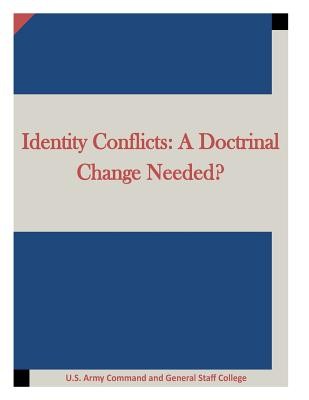
- Išsiųsime per 10–14 d.d.
- Autorius: U S Army Command and General Staff Coll
- Leidėjas: CreateSpace Independent Publishing Platform
- Metai: 2015
- Puslapiai: 94
- ISBN-10: 1511696036
- ISBN-13: 9781511696036
- Formatas: 21.6 x 28 x 0.5 cm, minkšti viršeliai
- Kalba: Anglų
- Extra -15 % nuolaida šiai knygai su kodu: ENG15
Atsiliepimai
Aprašymas
From recent operational experiences in Bosnia and Iraq, the U.S. Army has learned many important and hard-earned lessons. By incorporating some of these lessons learned into its capstone doctrine, FM 3-0, the Army has captured some key points and revamped its approach in conducting military operations in a complex environment. Meanwhile, a new thinking has emerged at the end of Cold War that focuses on the non-traditional way of examining warfare and armed conflict. Scholars such as Mary Kaldor, Herfried Münkler, and Rupert Smith have constructed an alternative approach concentrating on identity struggles amongst different racial, religious, ethnic, and sectarian groups as a central theme. These scholars have formulated a coherent argument that rivals the existing focus on the traditional military thinkers such as Carl von Clausewitz or Antonio Jomini.This research concentrates on whether U.S. Army's capstone doctrine, based on its operational experiences in Bosnia and Iraq, has recognized identity conflict as a vital feature in the post-Cold War environment. By analyzing and exploring different aspects of U.S. Army's operations in Bosnia and Iraq, this thesis will attempt to contribute to the discussion and debate on Army's conceptual thinking in framing the current operational environment based on recent experiences.EXTRA 15 % nuolaida su kodu: ENG15
Akcija baigiasi už 4d.23:00:11
Nuolaidos kodas galioja perkant nuo 10 €. Nuolaidos nesumuojamos.

- Autorius: U S Army Command and General Staff Coll
- Leidėjas: CreateSpace Independent Publishing Platform
- Metai: 2015
- Puslapiai: 94
- ISBN-10: 1511696036
- ISBN-13: 9781511696036
- Formatas: 21.6 x 28 x 0.5 cm, minkšti viršeliai
- Kalba: Anglų




Atsiliepimai